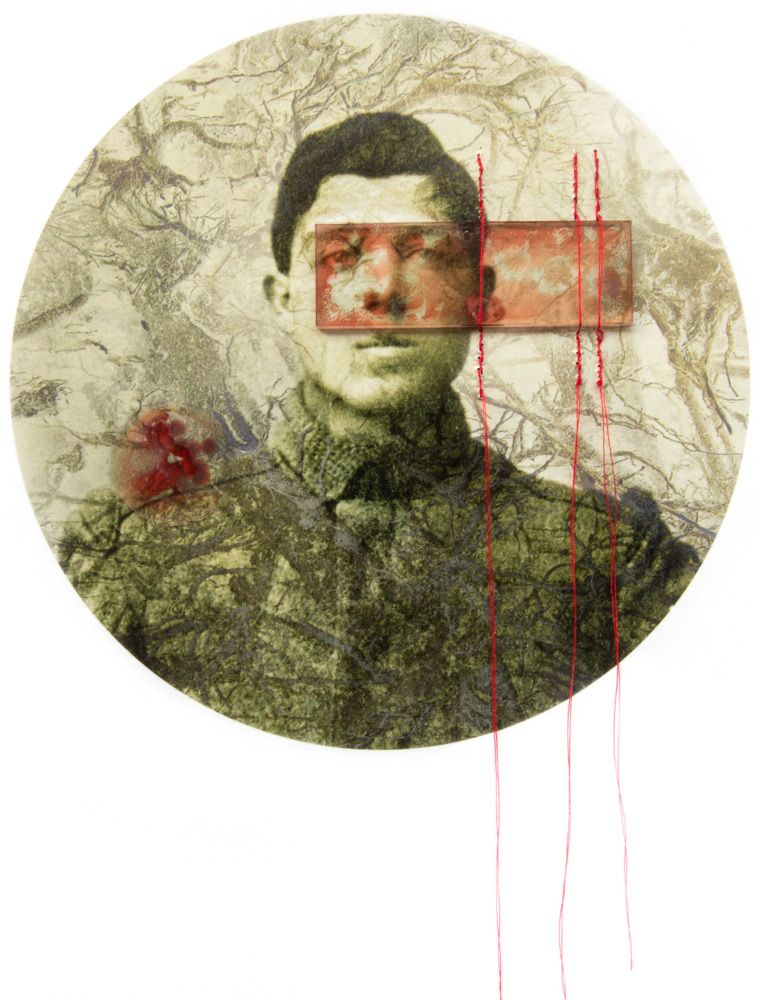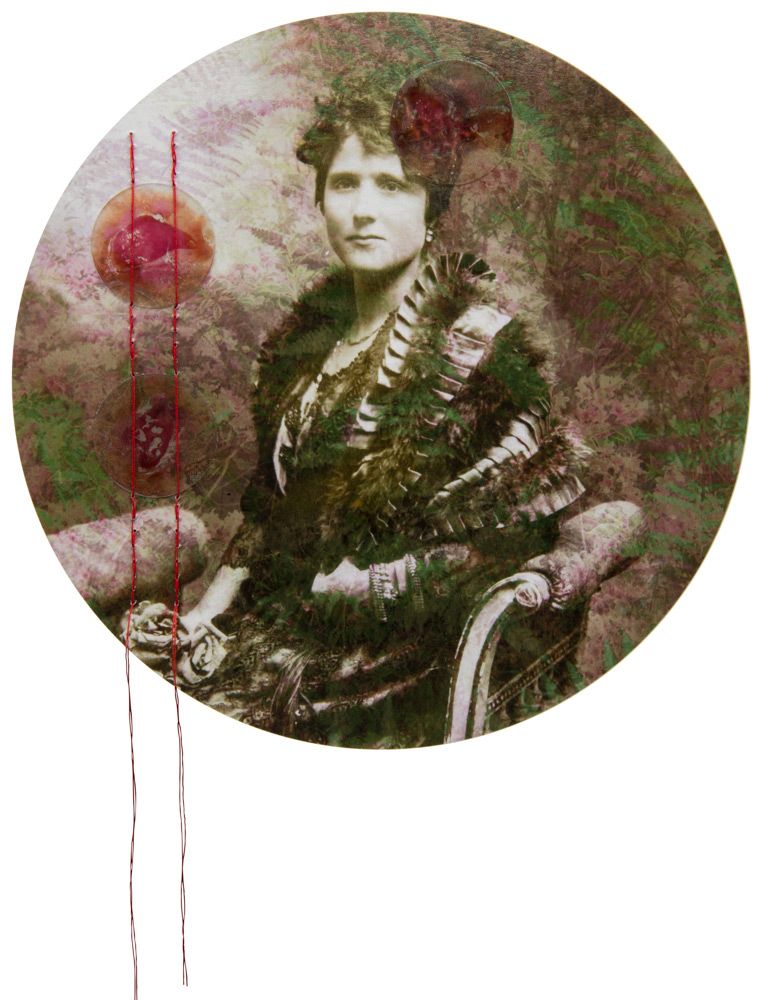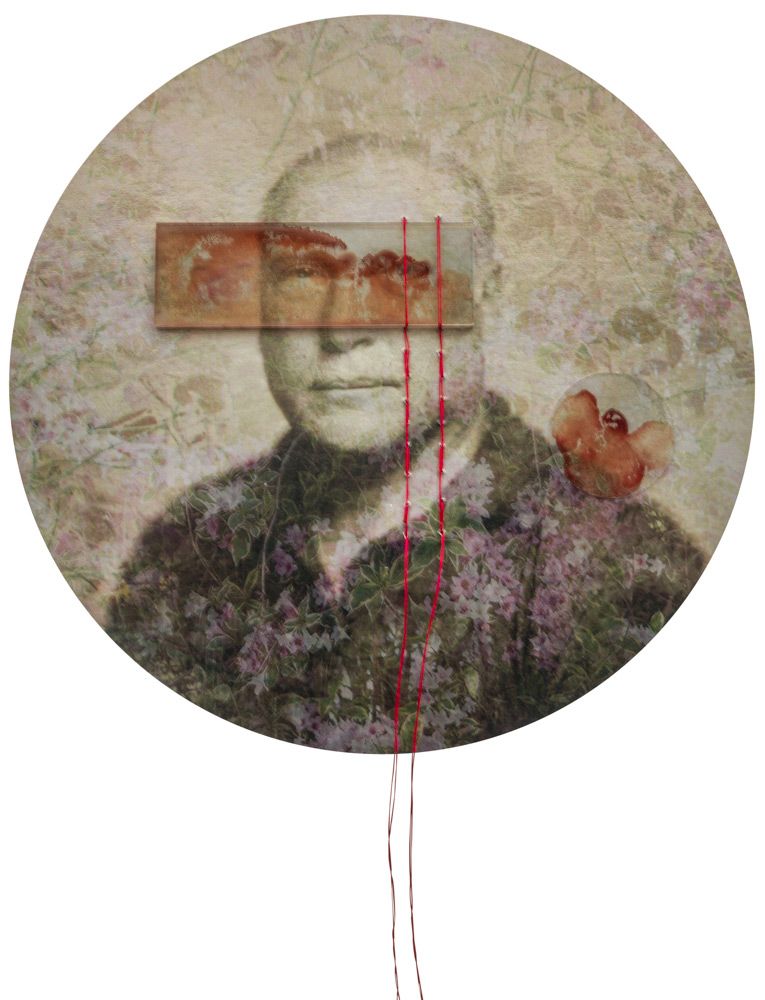blog
Interview with photographer JP Terlizzi

Alfredo/Grandfather
F-Stop Magazine: The Portfolio 2019 issue of F-Stop Magazine features your project “Descendants,” can you tell us about this project? What led to this work?
JP Terlizzi: Descendants was very much influenced by my response to loss and death and the need for belonging. I come from a very large, loving, extended Italian family. Growing up, I did not have a relationship with my father nor anyone on my father’s side of the family. I was, however, very close with all my relatives and cousins on my mother’s side. My mother unfortunately had her own issues and her hurtful actions and behavior made having a relationship with her difficult. For a little over twenty years, neither my relatives nor myself had a relationship with my mother. During that time, I maintained the relationship with all my relatives and attended all the family functions and had a special bond with each of mother’s seven siblings. Sadly, in the course of four years, I had lost nine maternal relatives. That was a lot of sadness to go through in a short amount of time, so I knew I wanted to work on a project that celebrated family and served as my own archive for remembrance. I personally do not have any old family photos, so I reached out to a cousin and one last living uncle. They both have photos and documents that were once owned by my maternal grandparents. My cousin and uncle were able to identify all the relatives in the photos that date back as far as my great grandparents. They shared many stories of my family’s struggles coming from Italy and starting their new lives as immigrants in America. I sat with these photos for over a year but didn’t know what to do with them. It wasn’t until I was at a family funeral that someone made a comment and said, “you know it’s in our blood” and that sparked the idea to incorporate blood. Using my own blood specimens, strategically placed on the photograph, was a way of physically connecting my identity to my past while also changing the context of how the viewer interprets the photo. Much of my work deals with identity, relationship and memory. This series is very special to me and I hold it close to my heart. Through this work, I’ve created my own archive of family portraits that connects my identity to my ancestors representing strength and resiliency. Hopefully one day I can pass these portraits and stories down to my grandchildren.
F-Stop: In your previous project “Mother” you work with family photographs as well. I am curious how this project might relate or have grown out of that previous work?
JP Terlizzi: When I was working on my “Mother” project I was physically assaulted by my brother eight months into the project for creating the work and photographing my mother. Since my brother lived with my mother, (a whole other story) I no longer had access to her. Sadly, that was the last time I saw my mother until she passed a year later. I wanted to keep the project going. It wasn’t until I began going through my uncles photographs for Descendants that I discovered images of my mother that I’d never seen before. Using the found photographs and recontextualizing them was a way to keep the Mother project alive and added a new dimension to the narrative.

Agata/Great Aunt
F-Stop: Most of the images in this work seem to be of family that came before you, it strikes me as curious that your project is named “Descendants” and not “Ancestors,” can you talk a bit about this? It is an interesting subtle shift to the focus of the work.
JP Terlizzi: I went through a couple of names for the series, Descendants just seemed right. It was important to include and preserve my identity with each of my relatives. It was a way to deal with my grief for so much loss. I needed that family connection and bond since I did not experience it fully with my parents, what better way than express it through my art. Many of the relatives in Descendants I never knew existed, nor met, nor had a relationship with. But yet I can clearly see the physical attributes and gestures that have been passed down. I immediately felt a bond with the person in the photograph even though in some cases we’ve never met. By using my own blood specimens, it was my way to share our common blood bond and make the portrait even more special and have meaning. Each descendant passes down their DNA through the generations. We can identify specific traits, diseases, and genetics through our blood. I am a direct descendant of my mother and she in turn, is a direct descendant of her parents. I’ve recently expanded the series to include a self-portrait of myself as well as my two sons. In turn, their children will be added to the series. I think its pretty cool that one day my grandchildren will be able to see and identify with six generations of their family linked together and connected by the actual blood that has been passed down.
F-Stop: In your project statement you mention your Italian sartorial ancestry – does this mean you are also looking at the clothing of your ancestors or Italian fashion in some way?
JP Terlizzi: Many of my ancestors were either tailors, seamstresses or shoemakers. It’s funny that no one in my family has that skillset today. But we DO ALL LOVE OUR SHOES. My grandfather was a shoemaker and had his own store in NJ. I always loved the smell of the leather and shoe polish whenever I walked into his store as a kid and have that same memory recall as an adult. The thread used in the series represents a symbol of their craft but also serves as a metaphor for connection and permanence.

Ralph/Artist’s Self-Portrait
F-Stop: Are you working on any other projects currently?
JP Terlizzi: I’ve been doing a lot of still life recently. I am currently working on a new series called The Good Dishes. The series integrates memory, legacy, and metaphor with my response to loss. It came about from cleaning out the family home after family members have passed and preserving the heirlooms of the family’s fine china. Growing up, every milestone was centered around food and the family table. The Good Dishes celebrates the memory of family and togetherness by integrating legacy and inheritance. This series focuses on stylized rituals of formal tableware while drawing inspiration from classic still life paintings. Presentation, etiquette and formality are disassociated by using food and fine china in unconventional ways as metaphors for the beauty and intimacy that are centered around meal and table.
For more about JP Terlizzi’s work see the 2017 F-Stop interview with Terlizzi here https://www.fstopmagazine.com/blog/2017/02/interview-with-photographer-jp-terlizzi/ or the current Portfolio 2019 issue or visit his website here www.jpterlizziphotography.com
Location: Online Type: Family, Featured Photographer, Interview
Events by Location
Post Categories
Tags
- Abstract
- Alternative process
- Architecture
- Artist Talk
- artistic residency
- Biennial
- Black and White
- Book Fair
- Car culture
- Charity
- Childhood
- Children
- Cities
- Collaboration
- Community
- Cyanotype
- Documentary
- Environment
- Event
- Exhibition
- Faith
- Family
- Fashion
- Festival
- Film Review
- Food
- Friendship
- FStop20th
- Gender
- Gun Culture
- Habitat
- Hom
- home
- journal
- Landscapes
- Lecture
- Love
- Masculinity
- Mental Health
- Migration
- Museums
- Music
- Nature
- Night
- nuclear
- p
- photographic residency
- Photomontage
- Plants
- Podcast
- Portraits
- Prairies
- Religion
- River
- Still Life
- Street Photography
- Tourism
- UFO
- Water
- Zine

Leave a Reply